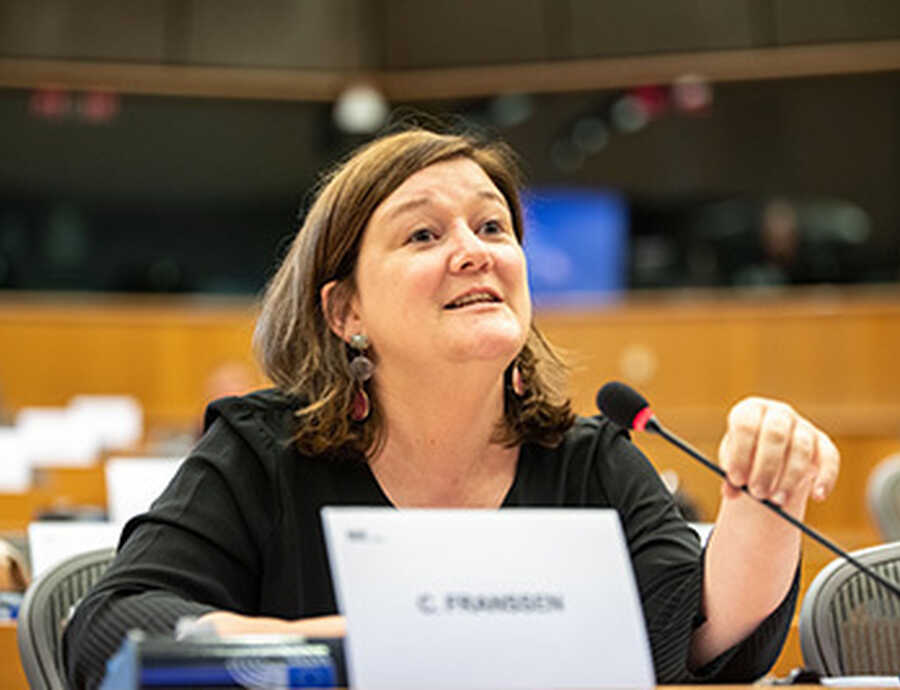Samen met collega Dennis Radtke uit de commissie werk en sociale zaken schreef ik een brief naar de bevoegde Europese Commissaris Nicolas Schmit. Het is een oproep voor een sterke Europese sociale dialoog in het herstelplan van de Europese Unie na corona. Maar liefst 32 andere Europarlementsleden uit vijf verschillende politieke fracties ondertekenden de brief. Een sterk sociaal overleg in de economische relance na COVID-19 wordt dus breed gedragen.
Lees hier de volledige brief:
22 April 2020
Call for a strong European social dialogue as part of the economic recovery plan for the post-Covid-19 period
Dear Commissioner,
Following the statement of the European Commission on 4 April we welcome the idea of an economic recovery “Marshall Plan” for the EU for the post-Covid-19 period. In addition, we call on all stakeholders to integrate a structured social dialogue as part of the preparation and implementation of this plan.
Despite the numerous measures at national and European level to coordinate the response to the socio-economic impact of the Covid-19 crisis, with measures including extending social protection, supporting employment retention (i.e. short-time work, paid leave, other subsidies), and financial and tax relief, the International Labour Organisation estimates that at least 25 million workers are at risk of unemployment. In addition, underemployment is also expected to increase on a large scale, as the economic consequences of the virus outbreak translate into reductions in working hours and wages. Finally, people in less protected and low-paid jobs, temporary and platform workers and zero-hour contracts, are particularly at risk due to the lack of social protection and rights, such as temporary unemployment schemes and adequate health insurance.
The European Union’s recovery plan will not only need to be decisive, coordinated and inclusive to stimulate the labour market, protect jobs and support families and vulnerable parts of society. Its key foundation must also be that everybody contributes a fair share to the recovery. If workers in certain new business models would be particularly hard hit by the impact of Covid-19 due to a lack of social protection and rights, while these same business models can count on the fiscal measures without contributing their fair share to the national budgets, this would be unacceptable. Tax fairness must be front and center of the recovery plan to meet the needs of people and the economy.
Previous crises have clearly shown that the impact on global unemployment and vulnerable groups is significantly lower in Member States and regions with a strong social dialogue, as was shown in the global financial crisis of 2008. Therefore, we call on the European Commission to ensure the structured involvement of social dialogue in the preparation and implementation of the European Union’s recovery plan.
Thank you very much for taking these considerations into account.
With kind regards,
Cindy Franssen (EPP)
Dennis Radtke (EPP)
Petra De Sutter (GREENS-EFA)
Tomas Zdechovsky (EPP)
Radan Kanev (EPP)
Kira Marie Peter-Hansen (GREENS-EFA)
Katrin Langensiepen (GREENS-EFA)
Anne Sander (EPP)
Estrella Dura Ferrandis (S&D)
Gabriele Bischoff (S&D)
Brando Benifei (S&D)
Loucas Fourlas (EPP)
Leila Chaibi (GUE-NGL)
Milan Brglez (S&D)
Marianne Vind (S&D)
Marie-Pierre Vedrenne (RENEW)
Alicia Homs Ginel (S&D)
Klara Dobrev (S&D)
Pierfrancesco Majorino (S&D)
Elisabetta Gualmini (S&D)
Manuel Pizarro (S&D)
Marc Angel (S&D)
Pierre Larrouturou (S&D)
Birgit Sippel (S&D)
Lina Galvez Munoz (S&D)
Agnes Jongerius (S&D)
Sylvie Brunet (RENEW)
Maria Walsh (EPP)
Romana Tomc (EPP)
Heléne Fritzon (S&D)
Johan Danielsson (S&D)
Stelios Kympouropoulos (EPP)
Jeroen Lenaers (EPP)
Kim van Sparrentak (GREENS-EFA)








